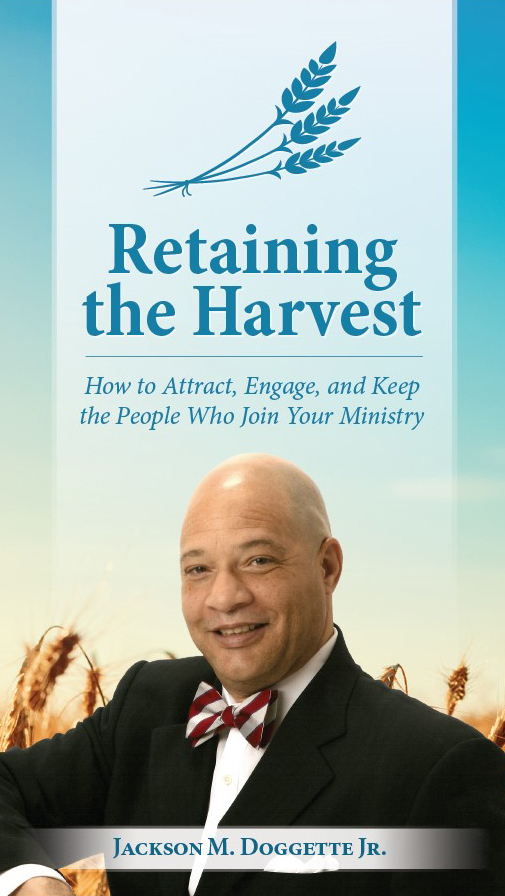
PPP Loan Forgiveness Application, Template And Video for Nonprofits
May 17, 2020
Nonprofit PPP Forgiveness May Be Harder To Receive Than Original Loan
May 22, 2020Jackson Doggette Shares, “How to Grow Church Offerings in the Digital Age”

Jackson Doggette Shares, “How to Grow Church Offerings in the Digital Age” is Doggette’s take on how churches must change to survive our “new normal.” Here’s what he has to say:
COVID-19 (coronavirus) has forced society in the United States of America to fundamentally change its way of life. And this has affected the church. Physical distancing has forced the closure of church buildings and severely curtailed physical gatherings. The church has been forced into the digital age. Some are hoping for a return to what once was “normal” in the analogue church community. But I am afraid that day has passed. Today and tomorrow will be quite different. And quite digital.
Internet gatherings have replaced physical gatherings. Some are pressing to open church buildings and encourage all members to return to the building for fellowship and encouragement. This is familiar. But what about the vulnerable? The elderly, those with underlying disease conditions and people of color are especially susceptible to COVID-19. Even with precautions, how many must die before the church decides to slow down and embrace this new normal? Ask the families of the preachers who defied the advice of health professionals and lost their lives trying to prove COVID-19 could not hurt them whether the risk is worth the benefit.
The inability to gather in church buildings has undeniably affected the income of churches. Because churches did not emphasize online giving, and in some cases did not make it available, members now need to learn a new method to financially support the church. Many members are not making the transition. Some churches will not survive and will go out of business for lack of money. But that does not need to be your church.
Jackson Doggette Shares, “How to Grow Church Offerings in the Digital Age”
There are five actions a church must take to survive and thrive. My definition of survive in this context is maintaining the average monthly income of tithes and offerings. My definition of thrive is increasing the average monthly income of tithes and offerings. So, what are those five things?
1. Clarify
Every church should have a clear and compelling mission. But most churches have so much going on that a guest would not be able to guess the core mission of the church. Jesus said the Great Commission is to make disciples of Jesus Christ (Matthew 28:18-20). That’s it! Every church will express this mission in their own language and style. But the core mission of every Christian church is to make disciples of Jesus Christ. Period. And the mission must be crystal clear to the members and the community if the church expects to receive financial support to advance that mission.
We can learn a successful methodology for making disciples of Jesus Christ by examining how Jesus advanced His mission when He walked the earth. And Christ’s method alone will reach the people. He mingled among people as one Who cared for them. He showed them compassion. He met their needs. As a result, He won their confidence and only then did He ask people to follow Him. Jesus understood His mission and stuck to it to the very end.
If the mission is not clear, the church is most likely in a maintenance mode. And very few are willing to sacrifice just to maintain.
2. Focus
Focus means to examine the church organization and strip away what distracts from the mission. There are many good things a church can do. But there is only one thing it was invented to do: make disciples of Jesus Christ. Organizational development will examine church leadership, operations, staff, environment and technology and make adjustments to focus on the mission.
If the focus is not clear, the church is likely surging from event to event and program to program to keep the members entertained or busy. Neither events or programs will inspire sacrificial giving because members are being taught to give in order to get something in exchange. This is one reason churches can exist for more than one hundred years and never have one hundred members.
3. Budget
“Where your treasure is, there will your heart be also” (Matthew 6:21 KJV). If you want to know what anyone values, just look at how they spend money. The church budget must reflect its priority to focus on achieving the clear mission. Ignoring how money is used will encourage mission creep. Eventually, there will be so many “good” things happening that no one can tell why the church really exists. Rework the church budget to clearly support the mission.
If the budget is not adjusted to reflect the priority of the mission, the church will continue to financially struggle because people will not be inspired to financially support a vague mission.
4. Document
One essential element of fundraising is having a written case for support document. This document is not designed to answer all of the questions a member/donor might have. But it should give enough of a compelling reason to financially support the church mission that people want to freely give. The primary reason people give is to see lives positively changed. This document must demonstrate the church is changing lives for the better through its mission of making disciples. If your case for support document would not inspire you to give to your church, the document has not been properly written.
If there is no compelling case for support, the church will fall back on fundraising techniques, like getting the little children to beg members for coins before children’s story time during the worship service. Fundraising techniques are not all bad. But they do not inspire consistent sacrificial giving.
5. Ask
“… [Y]e have not, because ye ask not. Ye ask, and receive not, because ye ask amiss, that ye may consume it upon your lusts” (James 4:2-3 KJV). Only about 9% of Christians in the United States of America tithe. Less than that number contribute offerings in addition to tithe. So, there is much room for increasing the financial strength of your church even in the context of COVID-19. But asking cannot be your first interaction with the member/donor.
Individual plans of care must be established for every member with the good of the member in mind. This cannot simply be a technique to prepare them for the ask. The church must earn the right to ask for support. Remember, making disciples of Jesus Christ is the reason the church exists. When members know they are truly cared for, they will most likely be willing to give you permission to ask them to financially support the church mission.
Unless the member/donor is asked to give, the church will hover just over broke waiting for people to give.
Well that’s it. Five actions a church must take to survive and thrive in the digital age.
What do you think? Share your comments and let’s start a dialogue.
Jackson Doggette, The Solutions Expert, is the founder of Doggette Solutions LLC and the consummate professional. He dramatically improves individual and organizational effectivenss. Click Here to Learn More
Jackson Doggette Shares, “How to Grow Church Offerings in the Digital Age” was first posted at INSIDE CHARITY
For more articles like Jackson Doggette Shares, “How to Grow Church Offerings in the Digital Age” VISIT HERE
To learn more about Jackson Doggette’s most recent book Retaining The Harvest VISIT HERE

